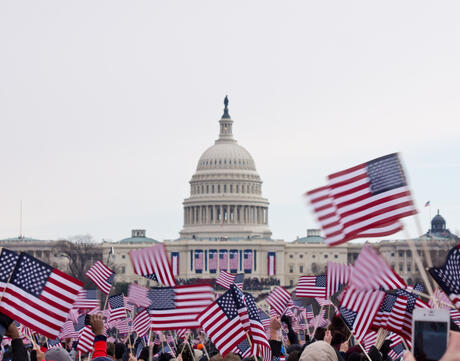
Celebrating Civic Learning Week
At a time of rising threats to democracy in the United States and around the world, we at Facing History agree that the civic mission of schools is more important than ever. Yet, in the United States, the notion that public schools should prepare young people for the rights and responsibilities of democratic life is both a platitude and a political lightning rod.
Most Americans broadly support the idea of civic education. In a 2020 poll of more than 1000 Americans about prospects for healing national divides, both conservatives and liberals identified civic education as the single most promising solution among a range of possible options. But despite the recent passage of a federal funding bill allocating $23 million to civic education, this consensus tends to fall apart. When it comes to the specific goals, content and methods of civics instruction, many efforts to improve civic education are beset by partisan controversy.
Still, as many Americans question the health of our own institutions and the commitment of our citizenry to democratic values - we find ourselves at an important crossroads.
It’s in response to this that Civic Learning Week (CLW), which kicks off Monday, March 6, was born. Inspired by a number of local and regional events last year, organized by teachers and education organizations, this inaugural national celebration of civic education is hosted by our colleagues and partners at iCivics and seeks to highlight the importance of civic education in sustaining and strengthening constitutional democracy in the United States. We are proud to join with numerous other organizations as champions of this effort and believe in the guiding idea that“More than ever, civic learning is needed to ensure each and every person across this country has the necessary tools to engage as members of our self-governing society.”
To celebrate National Civic Learning Week and work toward the goal of uniting students, educators, policymakers, and private sector leaders to energize the movement for civic education across the United States we are excited to share two thoughtfully curated collections with you to help promote civic engagement in your classrooms and schools:
In these collections, you will find brand new resources to explore with your students, including We the People: Expanding the Teaching of the U.S. Founding and an accompanying on-demand webinar, Teaching the U.S. Founding: An Inquiry-Based Approach, as well as a toolkit for teaching Democracy and Current Events.
Facing History’s Approach to Civic Education
Facing History integrates social emotional learning, intellectual rigor, and ethical decision making to empower young people to thoughtfully and effectively participate in civic engagement: the practice of individuals, groups, and institutions using their voices and skills to promote democracy, civil rights, and human rights, in their local, national, and global communities.
Facing History’s outlook on civic education reflects our conviction that building civic agency—preparing young people to participate in our democracy—involves the mind, heart, and conscience.
We Believe:
- Civic education begins in learner-centered classrooms that value students’ identities.
- Civic education creates learning opportunities for students to confront bias in history and today, and to develop a sense of the common good
- Civic education fosters civil discourse by teaching students to engage across differences.
- Civic education is multidisciplinary and introduces current events in the context of history.
- Civic education nurtures students’ voice and agency through both reflection and participation.
Our approach is holistic and integrated, recognizing that deep civic learning demands more than curriculum and is interdependent with students’ identities, social-emotional development, and access to equity. We believe that a good community member possesses tolerance, empathy, and respect for human dignity; the skills to seek truth and communicate across difference; a capacity for ethical reflection; a sense of the common good; a habit of engagement built on a belief that they can make a difference; and an understanding that each person’s choices matter.
Because we recognize the vital importance of civic education, we at Facing History will continue developing new content and professional learning opportunities to share in the coming months. Meanwhile, we join all the Civic Learning Week champions, and all those who value our democracy, in celebrating the power of what we can accomplish together to promote the civic engagement and participation of young people.

